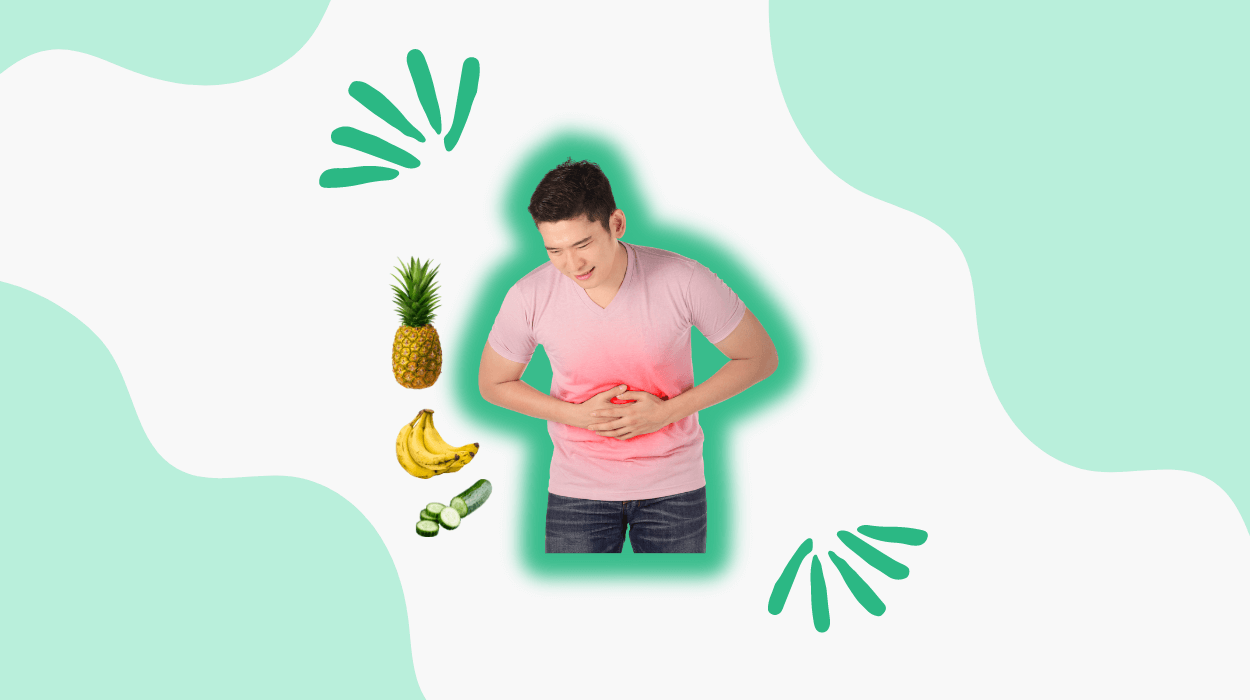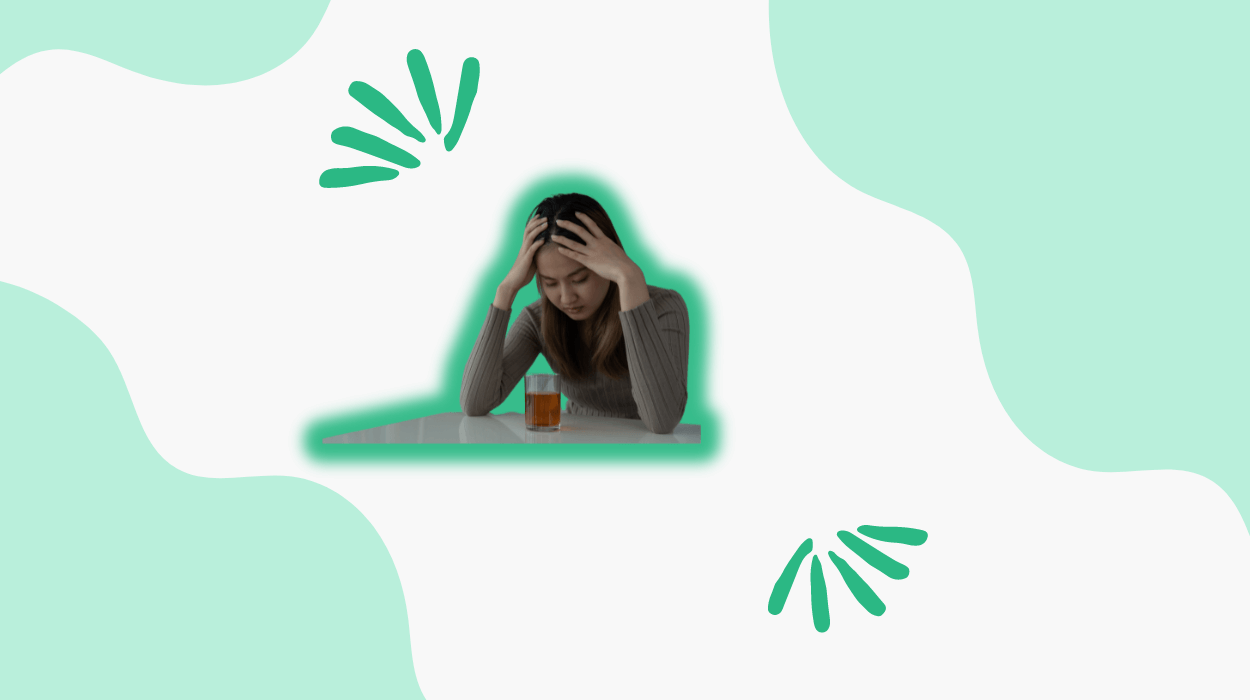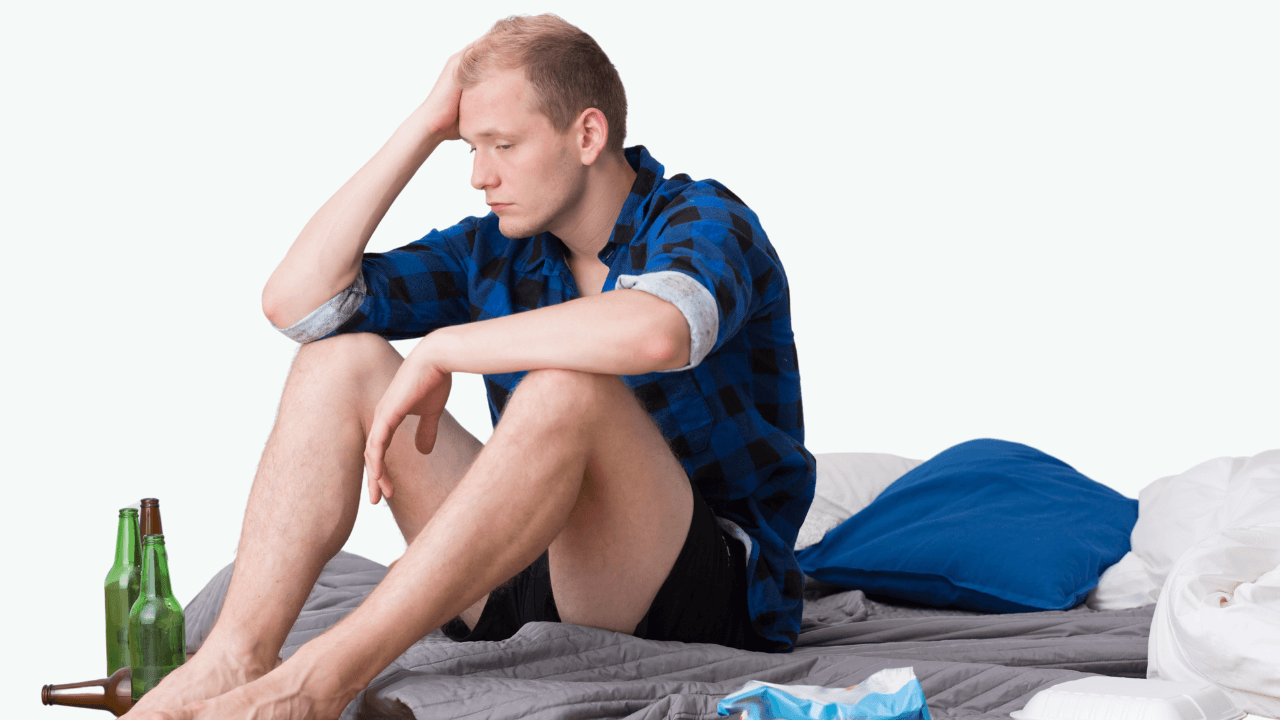

Drinking alcohol at social gatherings, events, and relaxation is common. It influences our mood and becomes an addiction when we indulge in it more frequently. We could sometimes experience diarrhea or constipation after a few drinks or on a night out.
Why does alcohol consumption have a negative impact on your digestive function? Excessive alcohol consumption could irritate the stomach lining and cause inflammation, known as gastritis.
Alcohol could worsen our gut health if we are already dealing with loose stool or an upset stomach. Thus, knowing the association between alcohol intake and diarrhea might help us prevent stomach issues.
Exploring the diet choices, hydration strategies, and tips to maintain moderate drinking could help us eliminate digestive problems related to post-impact of alcohol.

Our body loses a significant amount of fluid due to alcohol’s diuretic effect when experiencing diarrhea. It is essential to replenish our body with fluids to counteract the fluid loss.
You can hydrate yourself by drinking water, as well as other beverages that contain electrolytes. Electrolytes are minerals that help maintain the ratio of fluids in the body. Juices, electrolyte drinks, soups, and broths could also be beneficial in restoring hydration levels.
The BRAT diet has bananas, rice, applesauce, and toast. It may help people experiencing stomach discomfort and diarrhea.
It consists of easily digestible foods such as bananas, rice, applesauce, and toast.
Bananas can help replace electrolytes lost through diarrhea as they are a rich source of potassium. Rice is easy to digest and helps firm up loose stools.
Applesauce is gentle on the stomach and could provide fiber to promote healthy digestion. Toast is bland and may help absorb excess stomach acid that may be contributing to diarrhea.
However, if you are following the BRAT diet, you must avoid gassy and greasy foods, such as fast food, beans, broccoli, and Brussels sprouts. These foods could further irritate the stomach and worsen symptoms of diarrhea. Soups, pretzels, and potatoes without the skin may help ease your diarrhea symptoms and keep you hydrated.
BRAT diet can be helpful in relieving diarrhea, but it is not a long-term solution. Consulting with the doctor could help know the main cause of the diarrhea and provide appropriate treatment.
Probiotics could enhance gut health and support the immune system, reducing the symptoms of alcohol-induced diarrhea. They are present in certain foods like yogurt, kefir, sauerkraut, and kimchi or taken as supplements.
Probiotics may work by colonizing the intestines and inhibiting the growth of harmful bacteria. It could also produce substances like short-chain fatty acids that facilitate a healthy gut environment and energy for the cells lining the intestines.
Moderate drinking may help manage the symptoms of alcohol-induced diarrhea and minimize the potential adverse effects associated with excessive alcohol consumption. It could minimize the disruption of natural intestinal motility and maintain better bowel movement regularity.
Drinking within limits may help prevent diarrhea and its associated discomfort. It may also lower the risk of developing conditions like high blood pressure.
Moderate drinking may allow people to enjoy the social and psychological benefits of consuming alcohol without experiencing severe digestive issues. It could promote a healthier relationship with alcohol and contribute to overall health by avoiding excessive consumption.
When you consume a meal before drinking alcohol, the food may act as a buffer in the stomach. It may decline the absorption of alcohol into the bloodstream, preventing it from quickly passing through the cells of the intestinal wall.
Meals rich in carbs may help stabilize bowel function and support the digestive system by slowing down alcohol absorption.
Alcohol intolerance is a condition where we could experience adverse reactions to alcohol or specific components present in alcoholic beverages. It can manifest as facial flushing, nasal congestion, and diarrhea.
Some people may have a genetic predisposition to alcohol intolerance. They may lack the necessary enzymes, such as alcohol dehydrogenase or aldehyde dehydrogenase, which are responsible for breaking down alcohol. It might lead to the accumulation of toxic byproducts, causing adverse reactions.
Certain components present in alcoholic beverages, such as gluten, histamines, sulfites, or other additives, could trigger intolerance symptoms in susceptible people. For example, people intolerant to gluten might react adversely to beers that contain it.
Liver disease contains various conditions, including alcoholic liver disease, hepatitis, and cirrhosis. An improper liver functioning can disrupt alcohol metabolism, which could worsen the effects of alcohol on our bodies.
Alcoholic liver disease is directly caused by excessive alcohol intake and can lead to liver inflammation, scarring, and impaired liver function. It may also induce diarrhea like gastrointestinal symptoms.
Alcohol use, viral infections, or autoimmune disorders can cause viral hepatitis. When the liver is inflamed, its ability to process alcohol and other substances is compromised, potentially leading to digestive issues such as diarrhea.
Cirrhosis is a late-stage liver disease characterized by extensive scarring and permanent damage to the liver. The liver loses its capability to function properly, including metabolizing alcohol, which could further worsen diarrhea.
When our sleep schedule is disturbed, it can place added stress on the body and disrupt the normal functioning of the digestive system. It may upset the healthy balance of beneficial bacteria in the gut, which might lead to digestive issues such as diarrhea.
Lack of regular sleep could slow down the digestive process, causing food to remain in the stomach and intestines for longer periods. It could result in symptoms like bloating, indigestion, and diarrhea.
People with gastrointestinal disorders such as (IBS), Crohn’s disease, or celiac disease are prone to elevated symptoms when consuming alcohol, often leading to diarrhea.
| Gastrointestinal Issues | Effects of Alcohol Consumption |
|---|---|
| Irritable Bowel Syndrome (IBS) | Increased risk of diarrhea, bloating, and bowel movement issues. |
| Crohn’s disease | Alcohol might cause inflammation of the stomach lining and disrupt the natural motility of the intestines. |
| Celiac disease | Excessive sugar in alcoholic beverages can lead to loose stools, and alcohol can alter the stable levels of good and harmful bacteria in our gut. |
Water absorption in the intestines could be affected by the diuretic properties of alcohol, potentially leading to changes in bowel movements.
| Effects of Alcohol on Water Absorption in the Intestines |
|---|
| Alcohol acts as a diuretic, promoting increased fluid loss through urination and diarrhea. |
| Excessive alcohol consumption could lead to dehydration and imbalances in electrolytes. |
| Dehydration could affect the normal functioning of the intestines, potentially resulting in changes in bowel movements. |
| Diarrhea might occur when the intestines fail to absorb enough water, leading to loose stools. |
Alcohol consumption could affect the balance of beneficial bacteria in the gut. The gut microbiota has trillions of microorganisms, which help maintain digestive function, immune response, and overall health.
However, alcohol could promote the growth of harmful bacteria and reduce beneficial bacteria levels in our guts. This disruption might impair the digestion and absorption of nutrients, increase gut permeability, and cause inflammation, all of which may contribute to diarrhea.
Different types of alcohol contain compounds that could trigger gastrointestinal reactions, such as bloating and diarrhea.
Here are some examples of specific alcohols and their potential gastrointestinal effects:
| Alcohol Type | Potential Gastrointestinal Effects |
|---|---|
| Beer (containing gluten) | It may cause bloating and diarrhea in people with gluten intolerance or celiac disease. |
| Wine (containing sulfites) | Sulfites in wine could cause digestive symptoms in some people, including diarrhea and stomach discomfort. |
| Cocktails (high sugar content) | Excessive sugar in cocktails could lead to loose stools and diarrhea. People with a sensitivity to sugar may be more susceptible to these effects. |
| Spirits (containing congeners) | Congeners are by-products of alcohol fermentation and may cause gastrointestinal symptoms, including diarrhea, in some people. Darker spirits like whiskey and rum have higher congener levels compared to clear spirits like vodka and gin. |
| Liqueurs (containing dairy or cream) | Dairy or cream-based liqueurs could be hard to digest for people with lactose intolerance or dairy allergies, potentially leading to diarrhea. |
Alcohol consumption could damage the cells lining the stomach. This damage disrupts the protective mucous layer that normally shields the stomach from gastric acid. As a result, gastric acid could irritate and inflame the stomach lining, leading to gastritis.
Stomach inflammation caused by alcohol might cause a burning sensation in the stomach, indigestion, and a feeling of fullness. In severe cases, it could also lead to ulcers or bleeding in the stomach.
Chronic alcohol-induced gastritis could contribute to the development of more serious conditions such as peptic ulcers and gastric cancer.
Many alcoholic beverages, especially mixed drinks, contain high levels of sugar. When consumed in excess, our body sometimes struggles to absorb all this sugar. It could lead it to enter the colon, where it draws in water, potentially resulting in loose stools.
The high sugar content in alcoholic beverages could create an osmotic effect in the gut. It means that the sugar molecules attract water into the intestinal lumen, leading to an increased fluid content in the stool and potentially causing diarrhea.
If you experience diarrhea after drinking alcohol and your symptoms persist for more than 2-3 days or worsen over time, it is advisable to seek medical attention from a healthcare professional. Persistent diarrhea could be a sign of an underlying medical condition,
It is important to consult with a medical professional if you have a fever higher than 102°F (39°C), intense abdominal or rectal pain, black stool not caused by medication or bloody stool.
If you are also noticing signs of dehydration, such as dizziness, dark urine, or inability to urinate for some time, it is better to discuss your condition with a medical expert.
Excessive alcohol consumption could disrupt the natural balance of bacteria in the gut tract, leading to digestive issues such as diarrhea.
Drinking in moderation or occasionally could help you enjoy the moment while reducing the chances of getting alcohol-induced diarrhea. Consuming probiotics, bland foods, and staying hydrated could help alleviate stomach problems and promote better digestive health.
Learning about your alcohol triggers could help you manage your health and enhance the quality of your life. It might help you take proper measures to avoid adverse effects you experience after alcohol consumption.
Tyler Read earned an undergraduate academic degree from Sonoma State University, California and is a certified personal trainer (CPT) with NASM (National Academy of Sports Medicine). With over 16 years of experience, Tyler has trained clients both online and in-person.
He is passionate about helping others turn their love for fitness into a career. Tyler has worked with many local and commercial gyms before establishing his successful private personal training business, which he continues to operate.
